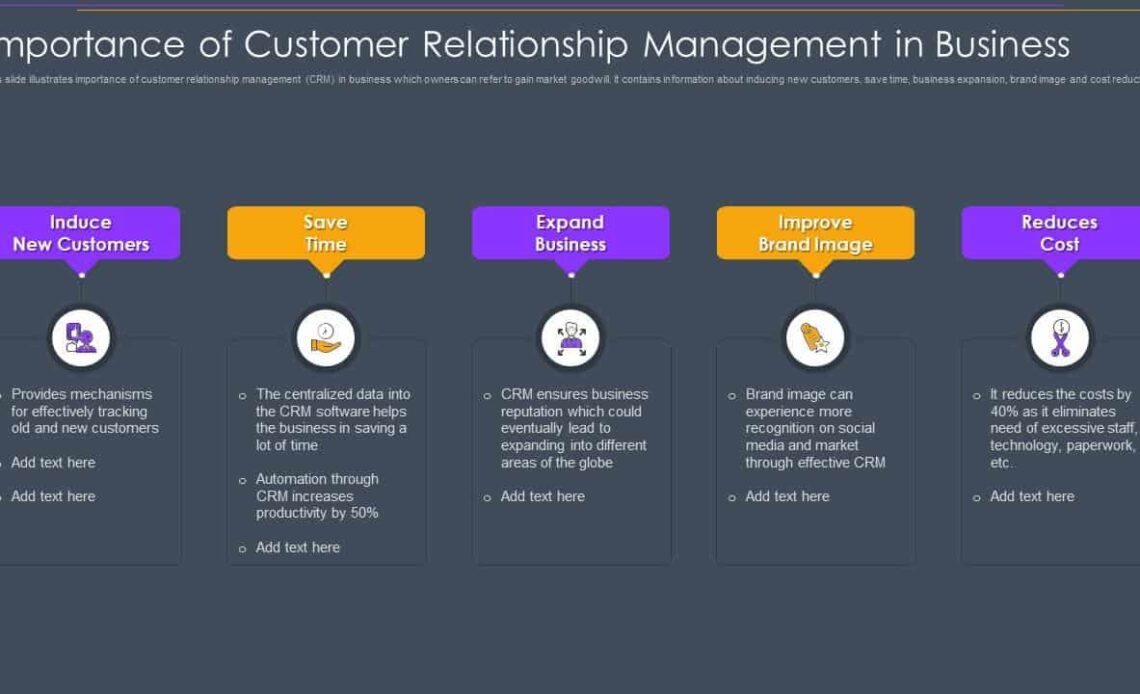In today’s competitive business landscape, building and maintaining strong relationships with customers is crucial for long-term success. This is where Customer Relationship Management (CRM) comes into play. CRM is a comprehensive approach to managing interactions and relationships with customers throughout their journey with a business. In this article, we will explore what CRM entails, discuss the ease of using a CRM system, and delve into the significant importance of CRM in driving business growth.
Contents
What is Customer Relationship Management (CRM)?
Customer Relationship Management (CRM) refers to the strategies, practices, and technologies used by businesses to manage and analyze customer interactions and data throughout the customer lifecycle. It involves various activities such as capturing customer information, tracking customer interactions, and providing personalized experiences to enhance customer satisfaction and loyalty.
Ease of using a CRM system
1. Centralized Customer Data: A CRM system serves as a centralized database, consolidating customer information from various touchpoints. It eliminates the need for manual data entry and allows businesses to access up-to-date customer data in real-time.
2. Streamlined Communication: CRM systems facilitate seamless communication by providing a centralized platform for customer interactions. This enables employees to respond promptly to customer inquiries, track customer interactions, and provide personalized service, leading to improved customer satisfaction.
3. Process Automation: CRM systems automate repetitive tasks and streamline business processes. This automation saves time, increases efficiency, and reduces the risk of human error, allowing employees to focus on high-value activities and customer-facing tasks.
4. Data Analysis and Reporting: CRM systems offer robust reporting and analytics capabilities, allowing businesses to gain valuable insights into customer behavior, preferences, and buying patterns. These insights enable businesses to make data-driven decisions, identify trends, and tailor marketing strategies to target specific customer segments effectively.
Also, Raed This: Top 13 Effective Strategies for Small Business Growth [100% Working]
Importance of Customer Relationship Management
1. Cost-effective: Implementing a CRM system can lead to significant cost savings in the long run. By automating manual processes, businesses can reduce administrative costs, optimize resource allocation, and enhance overall operational efficiency.
2. Improves Productivity: A CRM system empowers employees by providing them with the tools and information needed to serve customers effectively. Streamlined workflows, automated tasks, and access to real-time customer data enable employees to work more efficiently, resulting in increased productivity.
3. Retain Customers: CRM systems enable businesses to nurture and strengthen relationships with existing customers. By capturing and analyzing customer data, businesses can gain insights into their preferences, purchase history, and satisfaction levels. This information allows businesses to provide personalized experiences, targeted offers, and proactive support, increasing customer loyalty and reducing customer churn.
4. Understanding the Customers: CRM systems help businesses gain a deeper understanding of their customers. By analyzing customer data and behavior patterns, businesses can identify their customers’ needs, preferences, and pain points. This understanding enables businesses to tailor their products, services, and marketing campaigns to better meet customer expectations, fostering long-term customer satisfaction and loyalty.
5. Increasing the Number of Customers: Effective CRM strategies can help businesses attract new customers. By leveraging customer data and insights, businesses can identify potential leads, target specific customer segments, and create personalized marketing campaigns. This targeted approach increases the chances of acquiring new customers and expanding the customer base.
6. Developing Company’s Image: A CRM system allows businesses to deliver consistent and exceptional customer experiences across all touchpoints. By providing personalized service, resolving customer issues promptly, and maintaining open lines of communication, businesses can enhance their reputation, develop a positive brand image, and differentiate themselves from competitors.
7. Increasing Business Growth: Ultimately, CRM plays a vital role in driving business growth. By focusing on customer satisfaction, loyalty, and retention, businesses can maximize customer lifetime value and generate repeat business. Additionally, through targeted marketing campaigns and improved customer acquisition, CRM enables businesses to expand their market share and drive revenue growth.

